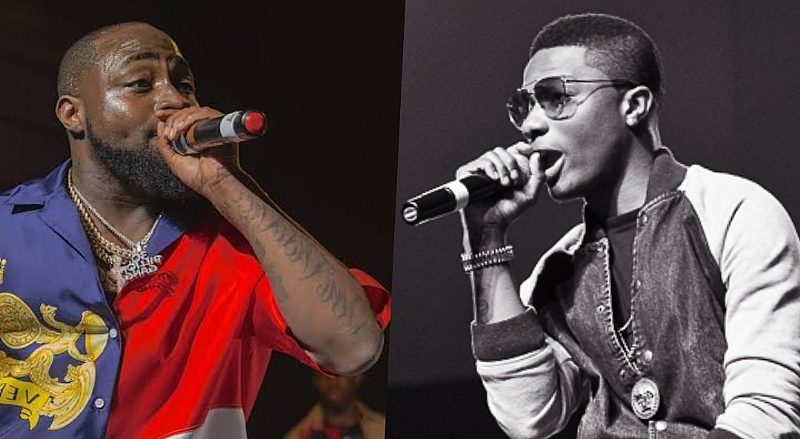In the heart of Nigeria’s vibrant music scene, two stars shine with a light so bright, they cast both illumination and shadow. Davido and Wizkid, the twin pillars of Afrobeat, have long been pitted against each other, not just by the media and industry but by their own legions of fans. Their rivalry has become a staple conversation in Nigerian entertainment, often overshadowing the artistry and message their music carries.
The story of Davido and Wizkid is one of parallel paths. Both rose to fame in the early 2010s, capturing the hearts of millions with their unique sounds and styles. Davido, with his energetic beats and catchy hooks, and Wizkid, with his smooth melodies and international collaborations, have both contributed significantly to putting Afrobeat on the global map.
The rivalry, however, seems to be more of a fan base creation than a personal vendetta. Social media platforms have become battlegrounds where “Wizkid FC” and “30BG gang” clash in fierce debates over who is the true king of Afrobeat. This division has led to a discordant note in the otherwise harmonious Nigerian music industry.
While competition can drive artists to push their creative boundaries, the question arises: does this rivalry benefit the genre? Afrobeat is celebrated for its ability to unite listeners across different backgrounds, telling stories of love, hardship, and triumph. The focus on rivalry can detract from the music’s core values and its power to inspire and bring people together.
Unfortunately, recent social media spats between the two artists have further fueled the rivalry, with fans picking sides and engaging in verbal battles online. Without a doubt, these incidents can create a charged atmosphere that, while not directly linked to gangsterism, does raise concerns about the potential for escalating tensions.
In fact, the rivalry has become a cultural phenomenon, reflecting complexities within fan base identity and the evolving landscape of African music. While some argue that the competition drives the artists to greater heights, others worry it could perpetuate division within the industry.
Without a doubt, there are broader concerns about the impact of intense rivalries and fan base divisions on the music industry. Some industry observers have expressed worries about the potential stifling of other musical genres in Africa due to the dominance of Afrobeats and the intense focus on a few top artists
Given the fear or rather worries which the popularity crisis between the duo is stirring among their fan bases, , it is admonitory to note that while the rivalry between them has certainly intensified over the years, there is no direct evidence to suggest that it has fueled gangsterism within the Afrobeat genre. However, the passionate and sometimes aggressive nature of their fan bases, coupled with the artists’ public disputes, does highlight the need for responsible fandom and artist behavior to maintain a positive and inclusive music industry environment. It is important for the industry to foster a culture that celebrates diversity and discourages any form of violence or division.
In fact, as Afrobeat continues to gain international acclaim, it is crucial for artists and fans alike to remember the roots of the genre. Afrobeat was born out of a need for expression and unity during times of political and social unrest. The legacy of its founder, Fela Kuti, was not one of division but of collective resistance and celebration.
Admonishingly put, Davido and Wizkid’s rivalry, while it is a testament to their influence, should not be the defining narrative of Afrobeat. It is time to shift the focus back to the music and its message. Let us celebrate the diversity and talent within the genre and remember that every bird, no matter how high it flies, shares the same sky. And in the vast expanse of Nigeria’s Afrobeat music, there is more than enough room for every artist to soar.
Crédito: Link de origem





Comentários estão fechados.